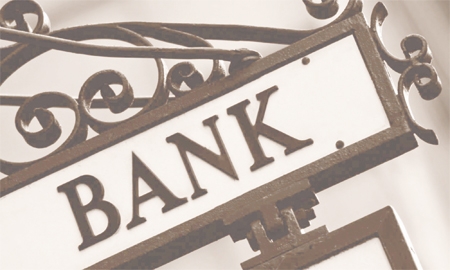Since 2000, sustained economic growth and diversification efforts in its dominant mining industry, along with stabilizing policies from the government, have developed Suriname from a low to an upper-middle income country. Its GDP per capita rose from just US$1,500 in 2001 to US$8,400 in 2011. Macroeconomic proficiency demonstrated by the government’s stability-oriented policies also brought annual inflation down from more than 100% in 2000 to 3.6% in May 2012. As a result, Suriname was one of the few countries last year that received a positive assessment and outlook from the IMF in its annual report.
On July 10, 2012, Fitch Ratings raised Suriname’s long-term issuer default rating (IDR) – a measure of an entity’s credit risk – to ‘BB-’ with a ‘stable’ outlook. The agency stated the upgrade “reflects the Surinamese authorities’ demonstrated commitment to rein in fiscal imbalances and maintain price and exchange rate stability, as well as the country’s positive investment cycle and growth prospects. Suriname’s ratings are also underpinned by the strength of the sovereign’s fiscal and external balance sheets relative to peers.”
Similarly, in May, Standard & Poor’s also awarded the country’s credit quality a ‘BB-/Stable’ rating and its “improving macroeconomic fundamentals”. S&P noted that in January 2011 Suriname’s government took “unpopular, but necessary, measures to correct economic imbalances that had built up during 2010 (an election year) through a fuel tax increase and devaluation of the Suriname dollar”, whose value was reduced by 20%. In addition, last July the government reached an agreement with the United States to clear the last remaining arrears on its bilateral debt.
“Strong policy measures had to be taken in order to improve the fiscal accounts,” Gillmore Hoefdraad, Governor of Suriname’s Central Bank, told the Inter-American Development Bank (IDB) in March. “One year later, we are looking at a stable exchange rate, an increase in international reserves of 30%, a sharp reduction in the fiscal deficit, and the clearing of all arrears with bilateral and domestic creditors. Last year, S&P and Fitch upgraded Suriname, even as other countries in the region and beyond faced serious downgrades of their sovereign debt.”
Steady GDP growth of 4.4% in both 2010 and 2011 looks set to continue, as medium-term economic expansion is projected to be sustained between 4% and 5%, supported by large investments expected to be made in the near future in the gold, alumina and oil sectors.
Suriname’s small, open economy depends heavily on its mining industry – contributions made by alumina, gold and oil mining to total exports amounts to 95%, and total tax and non-tax revenues account for more than 35% of fiscal revenues. However, foreign investors looking at entering Suriname should also be aware of the huge growth potential in the country’s agriculture and tourism sectors, and particularly anything connected to environmental protection and development.
Wary of external shocks to the nation’s economy caused by fluctuations of global commodity prices, President Desiré Bouterse announced in his New Year’s speech the establishment of a sovereign wealth fund that will provide savings for future generations and create a stronger Suriname.
Committed to strengthening the financial sector and its supervision, the Central Bank, working closely with the Ministry of Finance, has passed a long-overdue modernization of banking legislation, which is to be followed up with a similar move in the insurance and non-banking sectors.
“Come to Suriname and discover mutual benefits,” says Adelien Wijnerman, Suriname’s Minister of Finance. “We have a lot to offer – not only in mining, but also in other sectors, such as eco-tourism. We want to develop our country and to sustain economic growth. We can’t do it alone, so we need to find partners to come and support and join us, not only financially, but also through know-how that will support and develop our expertise.”

1 COMMENT
for the third time in a very short time span Suriname’s foreign currency rating has been upgraded.. in the middle of the world financial crisis, now that is impressive management!!